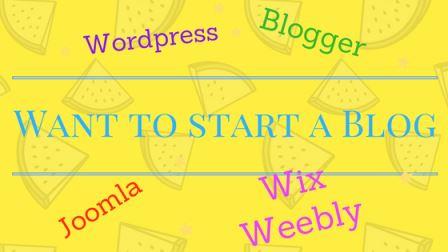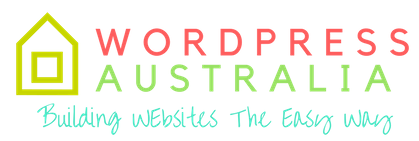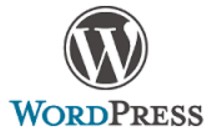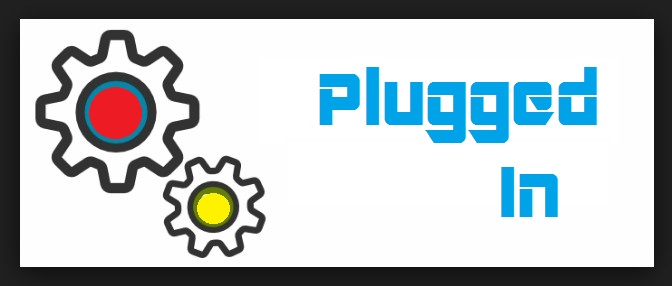
How Can I Set up a Blog?
Ok, so you’ve thought about it and decided the world really does need to know about the alternate lifestyle choices of the rich and famous, or the art of 19th Century Tibetan cooking or whatever piece of information you just have to share with the world.
So where do you start? What are the things you really need to know and do first?
Let’s start with the content management system or platform. What this refers to is the system that coders (way smarter than you and me) have constructed to make the adding of posts, pictures, menus etc easy to do without having to have a degree in computing.
Although learning a bit of coding can become extremely useful, it’s not necessary. Content Management Systems insert the code in the background while you just simply type away or click on your mouse.
It’s a bit like the computer or smart phone you’re using to read this at the moment. Chances are you are like me and wouldn’t have a clue how to make a phone or computer – and don’t really care to tell the truth – but we’re still (relative) masters of its use. Ah..the sweet bliss of ignorance.
- So what are the options for content management systems?
- What are the most popular and what are their pros and cons?
There are a number of popular platforms available for blogging, and all of them can be used for either free or very cheaply.

The three I have chosen to look at are all popular –
Blogger

Blogger was one of the first ever tools set up specifically for blogging. Launched in 1999, many of the features introduced by Blogger remain standard features on all blogs today such as allowing comments and the posting of photos.
It’s generally an easy platform to use. Blogs can be launched with a few clicks and you can start posting in minutes. All blogs are linked in a way that can help ‘random’ viewers find your blog and the service is reliable.
The url of your blog is a subdomain of blogspot.com, so your blog address will be something like mysite.blogspot.com. If you want to add your own domain it will cost you money and the process is a little clumsy.
In 2003 Blogger was purchased by Google and so your Blogger account is, for good or bad, inextricably linked to other Google products associated with you such as gmail or youtube. Google retains effective control of your Blog meaning that they retain the right to shut your blog down or to remove your access to it.
Not going to happen? In 2015, Blogger announced a new policy re the posting of sexually explicit content and knocked out hundreds of up-until-then acceptable blogs with thousands of readers.
Although they reversed their policy after less than a week following a huge backlash it serves as a real-life warning about retaining control.
WordPress
WordPress is a free and open-source content management system. It is not owned or dependent on any one company or individual. It is by far the most popular platform, representing around 20-30% of all websites in the world.
There are a number of different ways to use WordPress for your blog, including a free version (with a wordpress.com subdomain and advertising). Although the free version may be tempting, like Blogger, you’d be restricted to a wordpress.com domain.
To get the most advantage of using WordPress for your blog, you should host the site yourself using one of the many hosting companies available. The cheapest (but not necessarily best) hosting typically starts at less than $5 per month.
By hosting the site yourself you are no longer at the whim of a multinational like Google, as you would be with Blogger, although you will need to take your own precautions with backing up your site and with security.
The best part of WordPress though is its near infinite expandability. As it’s based on open-source software there are literally thousands of programmers and developers engaged worldwide in creating extra optional functionality known as ‘plug ins.’
A plug in might allow you to produce a slide show, or create a pricing table, or help with SEO on your site.
Many of the best plug-ins are provided free with countless others available at various, but mainly affordable charges. The net result is the ability to produce a website or blog that can do almost anything you’d like.
Best of all, you can master the basics of WordPresss in less than half an hour.
Joomla

Like WordPress, Joomla is an open source content management system. That means that you can freely edit and modify code without worrying about violating copyright laws, or being dependent on a multi-national for your hosting. It also means, of course, that you will need the host your site separately.
In my opinion it’s slightly more complex than WordPress but still reasonably intuitive to use. However this complexity allows for more flexibility, so if you have the design skills and are smart enough to learn the system you can possibly produce the website with the flexibility and functions that you want for cheaper than WordPress.
The biggest downfall for Joomla in comparison to WordPress, however, is its relative complexity. For example, incorporating your own custom design can be difficult without developer assistance.
There are also far fewer developers working on the Joomla platform meaning that access to all those really cool plugins is also limited.
Joomla remains very popular with a large community support network and is always worth considering as the platform you use to run your website. However if you want easy of use and flexibility then wordpress beats them all.












